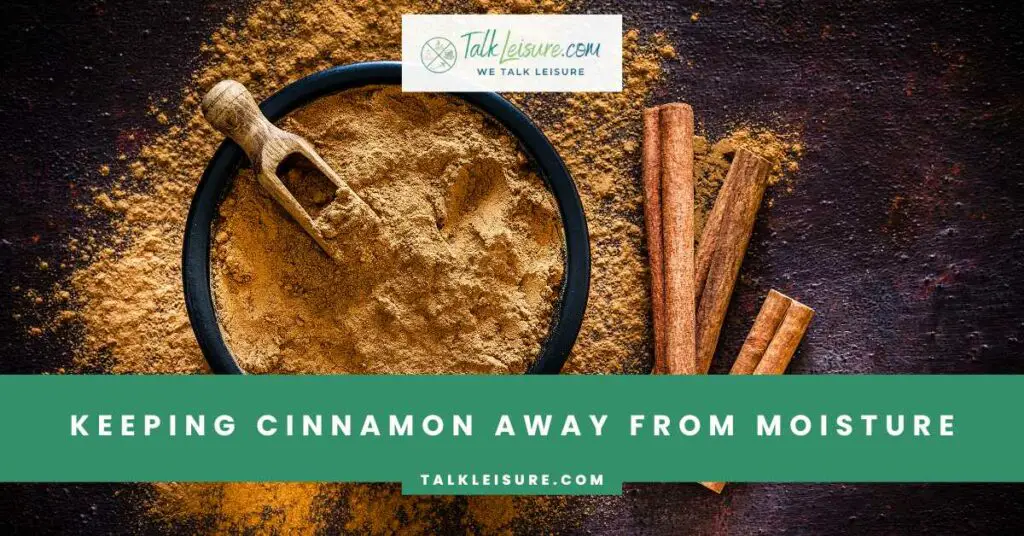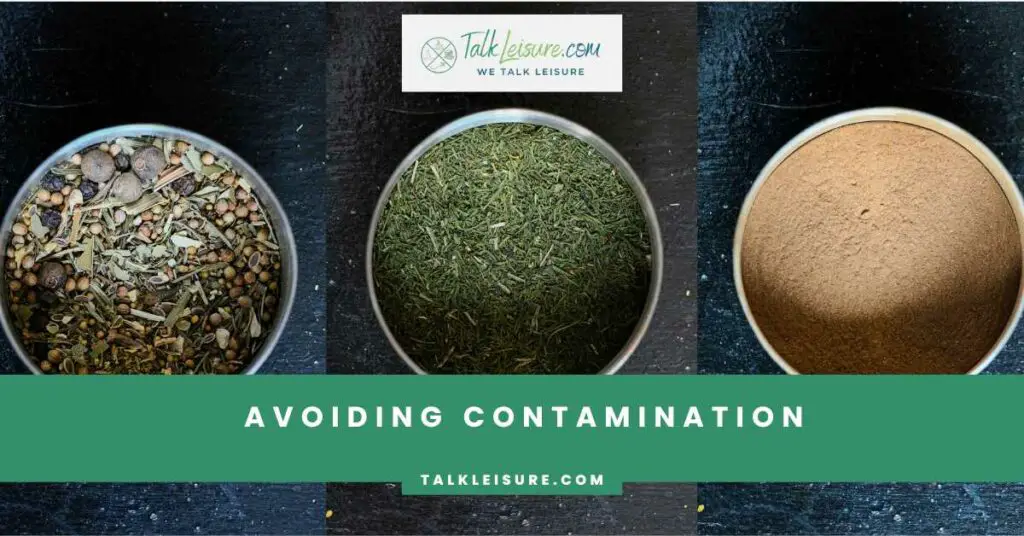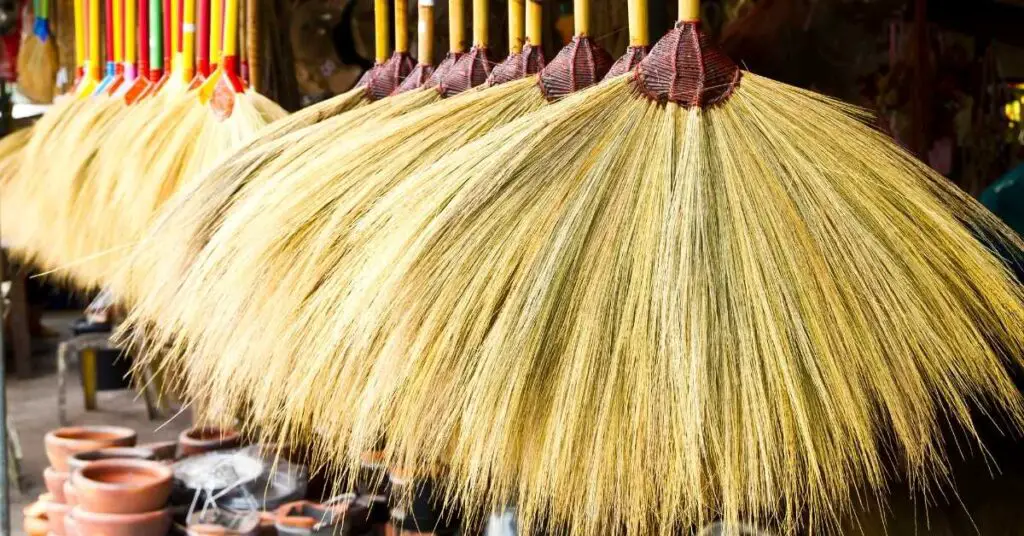Cinnamon is a popular spice known for its warm and aromatic flavor.
It is commonly used in baking, cooking, and as a garnish for beverages.
Due to its popularity and versatility, it is important to store cinnamon properly to maintain its freshness and flavor.
Whether you have whole cinnamon sticks or ground cinnamon, proper storage can make a significant difference in preserving its quality and potency for longer periods.
Why Storing Cinnamon is Important?
When it comes to spices, such as cinnamon, proper storage is of utmost importance.
Improper storage can have a detrimental effect on the freshness and flavor of cinnamon.
Here are some key impacts of improper storage on cinnamon:
Loss of aroma: Cinnamon is known for its warm and aromatic scent. However, if not stored properly, it can quickly lose its aroma. Exposure to air, moisture, and sunlight can cause the essential oils in cinnamon to evaporate, resulting in a loss of aroma.
Weakening of flavor: The flavor of cinnamon is what makes it such a popular spice. Unfortunately, improper storage can lead to a weakening of its flavor. When exposed to humidity, heat, or light, cinnamon can lose its potency, resulting in a bland and less flavorful spice.
Formation of clumps: Cinnamon powder tends to clump together when exposed to moisture. If not stored in an airtight container, it can absorb moisture from the surrounding environment, leading to the formation of clumps. These clumps make it difficult to measure and use cinnamon in recipes accurately.
Choosing the Right Container

When it comes to storing cinnamon properly, the choice of container is key. Here are some tips on selecting the right container for your cinnamon storage:
Selecting an Airtight Container for Cinnamon Storage
To preserve the freshness of cinnamon, it is important to store it in an airtight container. This will prevent air, moisture, and sunlight from seeping into the container and causing the loss of aroma and flavor. Look for containers with tight-fitting lids or seals that create a strong barrier against external elements.
Material Considerations for Cinnamon Containers
The material of the container also plays a crucial role in maintaining the quality of cinnamon. Here are some material considerations to keep in mind:
- Glass Containers: Glass containers are a popular choice for storing cinnamon because they are non-reactive and do not absorb odors. They also provide excellent visibility, allowing you to see the condition of the cinnamon without opening the container.
- Metal Containers: Metal containers, such as stainless steel or tin, can also be a good option for cinnamon storage. They are durable, resistant to moisture, and can provide airtight sealing. However, be cautious of any reactive metals that may alter the taste or quality of cinnamon.
- Ceramic Containers: Ceramic containers can add a decorative touch to your kitchen while keeping your cinnamon fresh. Make sure to choose glazed ceramic containers that are food-safe and free from any chemicals that may affect the aroma or flavor of cinnamon.
In conclusion, selecting the right container for cinnamon storage is essential to maintain its freshness and flavor. Opt for an airtight container made of glass, metal, or ceramic, depending on your preferences and needs. By taking these simple steps, you can ensure that your cinnamon stays flavorful and ready to enhance your culinary creations.
Optimal Storage Conditions
Ideal Temperature for Preserving Cinnamon Freshness
To ensure maximum freshness and flavor retention, it is important to store cinnamon in the right temperature. Ideally, cinnamon should be stored in a cool, dry place away from direct sunlight and heat sources. The ideal temperature for storing cinnamon is between 50°F and 70°F (10°C and 21°C). Avoid storing cinnamon in areas of high humidity or near the stove, as heat and moisture can cause the spice to degrade quickly.
Controlling Humidity to Enhance Cinnamon Shelf Life
Humidity can have a significant impact on the shelf life of cinnamon. Excessive humidity can cause the spice to clump, absorb moisture, and lose its flavor and aroma. To control humidity, it is best to store cinnamon in an airtight container. Containers with tight-fitting lids or seals will prevent moisture from entering and ensure the spice stays fresh for a longer period.
In addition to storing cinnamon properly, it is important to handle it with care. Always use clean and dry measuring spoons when scooping cinnamon to avoid introducing moisture into the container. It is also recommended to shake or stir the cinnamon occasionally to prevent settling and clumping.
By following these storage tips and maintaining optimal storage conditions, you can ensure that your cinnamon remains flavorful and ready to elevate your culinary creations for a long time.
Avoiding Exposure to Light and Heat

The Detrimental Effects of Light on Cinnamon
When it comes to storing cinnamon, it’s not just temperature and humidity that we need to be mindful of. Light can also have a negative impact on the flavor and freshness of this beloved spice. Exposure to light, especially direct sunlight, can cause the essential oils in cinnamon to break down, resulting in a loss of flavor and aroma. To prevent this from happening, it is best to store cinnamon in a dark and opaque container, away from light sources.
Heat’s Impact on Cinnamon’s Flavor and Fragrance
Heat can also be detrimental to cinnamon’s flavor and fragrance. Storing cinnamon near the stove or in a warm area can accelerate the breakdown of its essential oils and cause the spice to lose its potency more quickly. To preserve the integrity of cinnamon’s flavor and fragrance, it’s important to keep it in a cool and dry place, away from any sources of heat.
By taking precautions to avoid exposure to light and heat, in addition to controlling temperature and humidity, you can ensure that your cinnamon stays fresh and flavorful. Remember to store it in a dark, cool, and dry place, away from direct sunlight and any heat sources. Paying attention to these details will help you make the most out of this versatile spice in your culinary endeavors.
Keeping Cinnamon Away from Moisture

Preventing Moisture Absorption in Cinnamon Storage
Taking care to store cinnamon properly is not limited to controlling light and heat exposure. Moisture is another factor that can affect the quality and freshness of cinnamon. Cinnamon has hygroscopic properties, which means it can easily absorb moisture from the environment. When cinnamon absorbs moisture, it can become clumpy, lose its flavor, and even promote the growth of mold.
To prevent moisture absorption, it is crucial to store cinnamon in an airtight container. This will shield the spice from any humidity in the air and keep it dry. Furthermore, make sure to avoid using any wet utensils or hands when handling cinnamon, as any added moisture can contaminate the spice and compromise its quality.
The Role of Moisture in Mold Growth on Cinnamon
Moisture creates the perfect breeding ground for microorganisms, including mold. When cinnamon comes into contact with moisture, it becomes susceptible to mold growth, which not only affects the taste and aroma but can also pose health risks if consumed.
To minimize the risk of mold growth on cinnamon, always check for signs of moisture or condensation in your storage area. If you notice any excess moisture, it is essential to address the issue promptly. Additionally, ensure that the airtight container used for cinnamon storage is clean and dry before placing the spice inside. Regularly inspect and clean the container to prevent any mold spores from developing and spreading.
By being mindful of humidity levels and preventing moisture absorption, you can maintain the freshness and quality of your cinnamon. Remember to store it in a dry, airtight container and avoid using any wet utensils when handling it. These simple steps will help preserve the flavor and aroma of this versatile spice, allowing you to enjoy its full potential in your culinary creations.
Avoiding Contamination

Separating Cinnamon from Strong-Smelling Spices
When I store my cinnamon, I always make sure to keep it separate from other strong-smelling spices. Cinnamon has such a distinct and delicate aroma that can easily be influenced by other spices. To avoid any unwanted flavor mixing, I store my cinnamon in a separate container away from spices like cumin, garlic powder, or curry. This helps preserve the unique fragrance of cinnamon and ensures that it doesn’t absorb any undesirable odors.
Proper Handling Techniques to Prevent Cross-Contamination.
Another essential step in avoiding contamination is the proper handling of cinnamon. I always use clean and dry utensils when measuring or scooping out the spice. I make sure to avoid using the same spoon or measuring cup that I used for other spices, so as not to introduce any foreign particles or flavors into my cinnamon. It’s also important to wash my hands thoroughly before handling cinnamon to prevent any potential contamination.
By separating my cinnamon from strong-smelling spices and practicing proper handling techniques, I can ensure that my cinnamon remains pure and uncontaminated. This helps to preserve its unique flavor and fragrance, allowing me to fully enjoy the culinary benefits of this versatile spice. I always store my cinnamon in a separate container and use clean utensils and hands when handling it. These simple precautions go a long way in maintaining the quality and freshness of cinnamon.
Length of Cinnamon Storage
Shelf Life of Ground Cinnamon
Ground cinnamon generally has a shelf life of around 2-3 years if stored properly. To ensure maximum freshness and flavor, I make sure to store my ground cinnamon in an airtight container in a cool, dark place like a pantry or cupboard. This helps to protect it from heat, light, and moisture, which can all affect its quality over time. Regularly checking the expiration date and aroma of the cinnamon can also help determine its freshness.
Whole Cinnamon Stick Storage Considerations
Whole cinnamon sticks, on the other hand, have a longer shelf life compared to ground cinnamon. When stored correctly, they can last for up to 5 years. To store my whole cinnamon sticks, I keep them in an airtight container in a cool and dry area. It’s important to note that whole cinnamon sticks may lose some flavor and potency over time, so it’s best to use them before they become excessively brittle or lose their aroma.
In conclusion, proper storage and handling techniques are crucial to maintaining the quality and longevity of cinnamon. By following these guidelines, I can ensure that my cinnamon remains fresh, flavorful, and uncontaminated for use in my favorite recipes. So, whether I’m adding a dash of cinnamon to my morning coffee or including it in a savory dish, I can always rely on its exceptional taste and aroma.
Benefits of Storing Cinnamon Properly
On the other hand, storing cinnamon properly can preserve its freshness and flavor for a longer period. Here are some benefits of storing cinnamon properly:
Retains aroma and flavor: By storing cinnamon in airtight containers away from heat, moisture, and sunlight, you can ensure that it retains its aroma and flavor. This means that your cinnamon will pack a powerful punch of fragrance and taste when used in your recipes.
Extends shelf life: Proper storage can significantly extend the shelf life of cinnamon. By protecting it from moisture and light, you can prevent spoilage and maintain the quality of the spice for an extended period.
Easy to use: Storing cinnamon properly not only maintains its freshness but also keeps it in a convenient and usable form. Instead of dealing with clumpy cinnamon powder, you will have a smooth and easily measurable spice at hand.
Proper storage of cinnamon is crucial to maintain its freshness, aroma, and flavor. By storing cinnamon in airtight containers away from heat, moisture, and light, you can ensure its longevity and enhance its usability in various recipes. Don’t let improper storage compromise the quality of your cinnamon – take the necessary steps to store it properly.
Conclusion
To wrap up, here are some final tips and reminders to help you preserve the freshness and flavor of your cinnamon:
- When storing cinnamon, always keep it separate from strong-smelling spices to avoid contamination and flavor mixing. Store it in a separate container away from spices like cumin, garlic powder, or curry.
- Practice proper handling techniques. Always use clean and dry utensils when measuring or scooping out cinnamon. Avoid using the same spoon or measuring cup that you used for other spices to prevent cross-contamination.
- Wash your hands thoroughly before handling cinnamon to prevent any potential contamination.
- Ground cinnamon generally has a shelf life of around 2-3 years if stored properly. Keep it in an airtight container in a cool, dark place like a pantry or cupboard to protect it from heat, light, and moisture.
- Whole cinnamon sticks have a longer shelf life compared to ground cinnamon, lasting up to 5 years when stored correctly. Keep them in an airtight container in a cool and dry area.
- Regularly check the expiration date and aroma of your cinnamon to determine its freshness.
By following these simple guidelines, you can ensure that your cinnamon remains fresh, flavorful, and uncontaminated. Whether you’re using it in sweet or savory recipes, you can always rely on the exceptional taste and aroma of this versatile spice.
Remember, proper storage and handling techniques are key to maintaining the quality and longevity of cinnamon. So go ahead and enjoy the culinary benefits of this wonderful spice in your favorite dishes!











